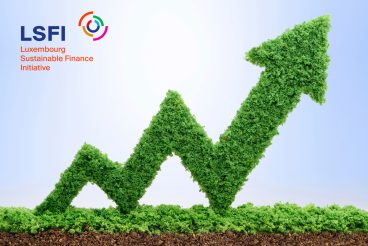Amid the full implementation of the EU’s Sustainable Finance Disclosure Regulation (SFDR) at the beginning of 2023, asset managers have complained about the shortage of corporate ESG data available to the industry, and the lack of standardisation in information that exists. Julie Becker, CEO of the Luxembourg Stock Exchange, discusses whether the future Corporate Sustainability Reporting Directive change this, as well as the role played by ESG rating agencies.

Amid the full implementation of the European Union’s Sustainable Finance Disclosure Regulation at the start of this year, most of the headlines have been triggered by the downgrading of a large proportion of existing SFDR article 9 funds – those that claim to have sustainable investment as their objective – to SFDR article 8 funds, that are merely required to disclose how they promote environmental or social impact characteristics.
The EU authorities have long insisted that the SFDR should not be considered a labelling system but rather as a disclosure regulation intended to bring more transparency to the market. However, John Berrigan, the European Commission’s director-general for Financial Stability, Financial Services and Capital Markets, acknowledged at the ALFI European Asset Management Conference on March 22 that policy-makers would have to consider how to respond to the industry’s de facto adoption of articles 8 and 9 as labels.
Beyond concern over the clarity of the legislation’s highly complex rulebook, and uncertainty about its interpretation by national regulatory authorities, asset managers have also complained about becoming subject to disclosure requirements linked to corporate sustainability data that is often patchy, incomplete and of variable quality.
These issues are supposed to be addressed, at least in part, by the Corporate Sustainability Reporting Directive, which was finalised at the end of last year. But, as Luxembourg Stock Exchange CEO Julie Becker notes in an interview with VitalBriefing, gaps still remain between the information that companies will be required to produce under the CSRD, and the data asset managers must provide under the SFDR.
“The CSRD will move beyond what was set out in the Non-Financial Reporting Directive (NFRD),” Becker comments. “More companies will fall within the scope of the new directive, and with this enlarged scope comes extended reporting requirements and audit obligations. Companies need to start preparing themselves for these additional levels of reporting.”
The Commission estimates that more than 50,000 companies will fall under the CRSD compared with the 11,700 required to report under the NFRD. For the latter, CSRD reporting will start from 2025 on their financial year starting on or after January 1, 2024. Companies that meet two of the three criteria of more than 250 employees, turnover exceeding €40m and a balance sheet greater than €20m will have to start reporting in 2026, followed by listed small and medium-sized enterprises in 2027.
Understanding sustainability data

With the rapidly evolving regulatory landscape for ESG and sustainable finance comes a range of challenges. How the various pieces of legislation fit together is one of the key questions for market participants. “There is a gap between SFDR reporting obligations and CSRD obligations,” Becker says. “The CSRD does not cover all companies, although the scope has been extended considerably. It will only partly solve the corporate sustainability data challenge posed by the SFDR, although the CSRD is certainly a step in the right direction.”
Becker says the challenge now is not the quantity of data but rather its quality and usability, combined with lack of standardisation and harmonised reporting standards.
To address this issue for when the CSRD is in place, the European Financial Reporting Advisory Group is working on a sustainability reporting standard, as is the International Sustainability Standards Board. “The data provided needs to be uniform and comparable, and this can only be ensured through universal standards,” Becker says. “This will help clear up any ambiguity about how companies should report and incorporate double materiality, and reduce the risk of greenwashing.”
In terms of verification, the CSRD will require limited assurance on companies’ disclosures. Becker argues: “The forward-looking aspect of data is crucial to understanding the transition path companies are on, but we need more financial professionals who understand how different scores and ratings are built, who can read science-based data, and interpret and use the data properly.”
ESG rating methodologies
She is less confident that the CSRD will resolve the problem of divergence in assessments and conclusions between providers of sustainability data and ratings on the same companies, pointing out that it is not designed to do so.
“The directive does not set out to solve the issue of divergence when it comes to multiple ESG ratings given to the same company by difference actors,” Becker says. “There is often a divergence between ratings, and to understand this, we need to take a closer look at the methodology used by different rating agencies and the scope of the data they collect and analyse. It is important to establish what data sources they use, which issues or aspects they rate, which weight they give to each of E, S and G factors, and what tools they use to measure and compare them.”
She points out that other differentiating factors may include whether ratings are based only on publicly-disclosed information or also incorporate discussions with the company; whether companies are rated on different sets of attributes or issues; and measurement divergence, such as whether a firm’s labour practices are evaluated on the basis of workforce turnover, or the number of labour-related court cases brought against the company.
Says Becker: “A rating agency should analyse what issues are material to the company and define appropriate weights to build the rating. They do not necessarily give the same weight to the same attributes, leading to different results. ESG ratings inherently have a subjective component in decisions on the weight given to different environmental, social and governance issues, and they take into account both quantitative and qualitative aspects. The lack of standardisation on the issues to consider, how to measure their impact and how to weight them overall cause divergence between ratings.”

Limitations of ESG ratings
She argues that ESG ratings should be considered as an additional piece of information that investors, financial professionals and the broader public can use to make more informed investment decisions or more conscious consumer choices: “An ESG rating in itself is not enough to prove whether a company is sustainable or unsustainable. That judgement is not down to ratings alone, but the result of different sources of information put together, and the interpretation of this information.”
“Transparency is the key aspect, and harmonising companies’ ESG disclosure and facilitating standardised, reliable and comparable data may help reduce divergence,” Becker concludes. “Another option to consider might be to design a dedicated framework for ESG rating providers similar to the Credit Rating Agencies Regulation, taking into account not just conflicts of interest, methodology and disclosure but also unique aspects of the ESG ratings market.”
— — —
Julie Becker has been at the helm of the Luxembourg Stock Exchange (LuxSE) since April, 2021. She joined LuxSE in 2013 and was appointed to its Executive Committee in 2015, before being named Deputy CEO in 2019, and CEO two years later.
Her career in the financial sector in Luxembourg spans over two decades and includes positions at the Central Bank of Luxembourg and Dexia. In 2016, Julie Becker founded the Luxembourg Green Exchange (LGX), the world’s leading platform for sustainable securities. A recognised expert in the field of sustainable finance, Julie Becker has represented LuxSE and LGX at numerous, international expert forums and conferences over the past years, including at the prestigious EU High-Level Expert Group on Sustainable Finance from 2016-2018. She is also the Chair of LuxCMA, a capital markets industry association established in 2019.





